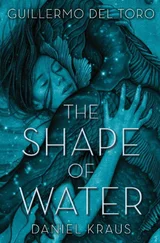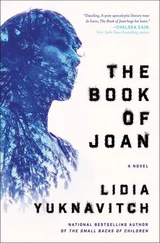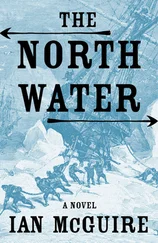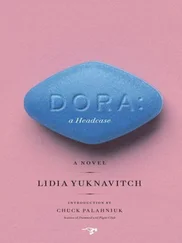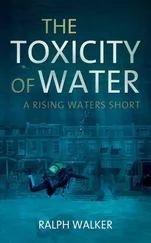Whatever it was or was not, there were words. Not just my own. I wrote stories, I wrote books, but the more I wrote the more I saw a door opening behind me, and I saw that if I jammed my motherfucking foot in it, more of us could get through. And that we could make things. Together. What we could make, was art. How that mattered. With other people I made paintings. With other people I made performances. With other people I made stories and readings and strange outsider art events like filling the trees with bras and little raw narratives or unbooting booted cars or hooking up free cable for poor people with a friend who worked for Bell or putting haikus about earthworms and cunts on the windshields of cars in corporate parking lots.
And I wrote my second book of stories.
The book that came out after the death of my marriage was called Liberty’s Excess . If you pick it up, you will recognize the stories. They are the stories of people trying to perform the relationships we’ve been handed as scripts. Daughter. Mother. Husband. Wife. Marriage. They are the stories of women and men who try to love and fail. And fail. And they are the stories of people who live at the margins of this thing we call culture, mostly fucking up, but some of us, aren’t we still here? For the ones who aren’t? I wonder, is it us that fucks up? Or the stories we’ve been given?
It is not easy to leave one self and embrace another. Your freedoms will scar you. Maybe even kill you. Or one of your yous. It’s OK though. There are more.
How many times do we die?
Words, like selves, are worth it.
I MAY HAVE BEEN A BIG FAT FAILURE AT MAKING A HOME, but I made up how to make something else in its place. Out of the sad sack of sad shit that was my life, I made a wordhouse.
The first wordhouse I built was a literary journal. Now usually when someone says the words “literary journal,” you picture something small and white and pristine like Virginia Quarterly Review . Not that. The thing we made was huge. Nine-by-twelve perfect bound four color in your face. Counterculture. Every issue had a theme meant to deconstruct — my favorite thing I ever learned as a scholar — the “literary journal.” Themes like Obscenitydivinity. Blow. Varieties of Violence. Alien. At the helm were me and my smart as crap talented as fuck friends, exactly like a garage band except with paper and computers. We taught ourselves everything — editing, design, layout, typesetting — and then we took what we had learned and made every single page an event horizon. Image and text warred or danced with each other. Poems interrupted stories and giant photos of tits interrupted the white space and lyric line of poems. High art got under the sheets with low art — Yusef Komunyakaa’s words right next to the words of some homeless woman, or a graffiti artist, or an unwed mom you never heard of before. The page made it possible to kill the distance. Writing, we decided, was everywhere. It was whatever we wanted it to be.
We put Annie Sprinkle and Andres Serrano and Kathy Acker and Andrei Codrescu and Joel-Peter Witkin on those big white pages. We put ex-cons and recovering addicts and drunks right next to them. And we destroyed the sanctity of the literary page while liberating the noise and heat of art. Everybody had day jobs. Everybody stayed up too late making the big books. Everybody spent way too much time cursing out the blue-aproned nerds at Kinko’s. I spent my food and rent money on our big irreverent mouth. We won awards. We got grants. It really was something, though I don’t know what, and that seems right, even today. It was a fast burning supernova.
I fucking loved it.
Why?
It was the first thing in my life I ever loved that I didn’t spread my legs for. Maybe you believe that. Maybe you think it’s a line. Either way it’s true.
Something else happened through the wordhouse. Through the wordhouse I met writers who had somehow or other read my writing. Through the wordhouse I found voices and bloodsong exactly how it felt to me on the inside where I thought I was the only one. There were others like me. Um, lots of them. Breaking writing rules. Reaching for writing impossibilities. Taking their newly-found intellects into alien territories. Making things up. Maybe even a life. A self.
I’d meet these people at conferences and readings and performances and art shows. We’d huddle in corners and drink and laugh and plot our art secrets. We’d communicate like underground societies of people who read the outsider books, stared at the taboo art until we passed out, mouth watered in the presence of writing that tore your face to shreds even as it might never see the light of day. You wanna know what the two words are that describe what these people meant and still mean to me are?
Tribe.
Sacred.
I don’t need anyone to explain to me why people join gangs or develop prison societies or only trust others of their rule breaking kind. I don’t have any problem understanding why people flunk out of college or quit their jobs or cheat on each other or break the law or spray-paint walls. A little bit outside of things is where some people feel each other. We do it to replace the frame of family. We do it to erase and remake our origins in their own images. To say, I too was here.
And guess what? Turns out, I had a twin.
Did I mention I’m a Gemini?
When I say “twin,” I don’t mean biologically … though who knows, the way genetics travel the superhighways of blood and cells. My twin in the tribe has blonde hair. Blue eyes. Unusual relationships with sentences. Weird views on culture and storytelling. Fire in his fingers and shooting out the top of his head.
I met my twin when I was miraculously invited to give a literary reading at San Diego State University. He had been invited as well. We had been invited together because our writing was, well, weird. There’s never been a good word for it as far as I’m concerned. “Experimental” sounds dumb, and “Innovative” sounds strangely snooty. Whatever the word is for taking everything you ever learned about making characters, plots, and storylines and blowing them up like putting firecrackers in the heads of Barbies as I did as a kid, well, that’s what we do. Whatever the word is for being more in love with words than with conventions and rules about words, that’s us.
Lance Olsen and me, we are, and I say this with some authority, language bandits.
If you don’t have a twin in a tribe I’m telling you — drop whatever you are doing in your life and go look for them. The twin and the tribe. I’m serious. Because having a bloodword tie and a tribe pretty much saved me from myself. If I had tried to live one more year trying to be like the people around me I wouldn’t have lasted long.
If you Google Lance Olsen you will find that he’s kind of a rock star within the tribal sphere we move through. But that isn’t why I love him or why I have his back forever. It’s this: his words make my words more possible. In his language my brain stops blow up and new ideas shoot out. In his books the moment of a kiss on Nietzsche’s lips, or the seconds before a film begins in a theater in the Mall of America, or the instant before a blast that atomizes the very differences between warring hearts makes you forget the beginning, the middle, and the end as you knew it.
And you will find that he is a Fiction Collective Two author and editor. Like me. If you Google FC2, you will find their mission statement: “ FC2 is among the few alternative presses in America devoted to publishing fiction considered by America’s largest publishers too challenging, innovative, or heterodox for the commercial milieu.”
I don’t know about you, but “heterodox” sounds kinda brainy to me. So I will say this. I am a wrecker and maker of wordhouses. Me and my twin have each other’s backs. And we’re coming for your women and children.
Читать дальше

